Cargando...
Recursos educativos
-
Nivel educativo
-
Competencias
-
Tipología
-
Idioma
-
Tipo de medio
-
Tipo de actividad
-
Destinatarios
-
Tipo de audiencia
-
Creador
Lo más buscado
- Objeto digital de aprendizaje
- matemáticas de secundaria
- Clasificación de los animales
- Juegos educativos para primaria
- Cine Japonés
- Experimentos de botánica
- Alimentación saludable en segundo
- Actividades de lógica en quinto
- Variación lingüística
- Experimentos de ciencias
- Juegos de tablas de multiplicar cuarto
- Cuentos cortos para dormir primaria
- experimentos de física
- Alimentación saludable en noveno
- Dante Alighieri
-
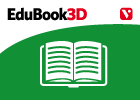
Commercial agriculture
EduBook Organización
- 3164 visitas
4.1. From subsistence agriculture to commercial agriculture The Industrial Revolution marked a change from subsistence agriculture to commercial agriculture (producing crops to sell) in MEDCs. Advances…
-
Final self-evaluation 02 - Ancient History
EduBook Organización
- 2970 visitas
Decide if each statement about the Celts and Iberians is true or false: Both the Celts and Iberians used writing and money. ➝ The Iberians lived in villages called forts. ➝ Iberian villages were…
-
True/false. Main characteristics of the Celts
EduBook Organización
- 2949 visitas
Decide if the following statements are true or false: The Celts lived in the South of the Iberian Peninsula. ➝ They were a tribe from Africa. ➝ They lived in walled villages called forts. ➝ Their…
-
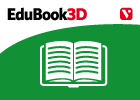
Crisis in the Lower Middle Ages (14th and 15th centuries)
EduBook Organización
- 2893 visitas
4.1. European monarchies at war Some kings provided letters of privilege to the bourgeoisie, freeing them from the control of feudal lords. They also offered the bourgeoisie a monopoly on business and…
-
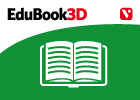
The Catholic Monarchs
EduBook Organización
- 2795 visitas
1.1. The union of Castile and Aragon Ferdinand, the future king of Aragon, and Isabella, the future queen of Castile, were married in 1469. They later became known as the Catholic Monarchs. When their…
-
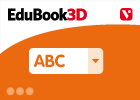
Final self-evaluation 8 - The Hydrosphere
EduBook Organización
- 2462 visitas
Match each sentence beginning with its correct ending: Poor countries cannot continue to develop... Rich countries have the money and resources to avoid... The distribution of clean water on the…
-
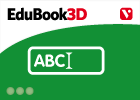
Complete - Remember
EduBook Organización
- 2450 visitas
Complete: The population includes all the adults who can work. The money people get when they work is called a . The manufacturing industry makes finished products from materials. The sector includes…
-
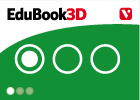
Choose. Europe's difficulties
EduBook Organización
- 2204 visitas
Choose the correct answer: What was the situation of the European economy in the 1920s? Which country had particularly serious problems after the First World War? What was the name of the plan in which…
-
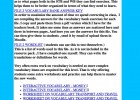
Lesson plan: New English File Intermediate Unit 2
Tiching explorer Organización
- 3 lo usan
- 3037 visitas
This page organizes the materials of the book into lists of contents, vocabulary banks, wordlists and presentations. This second unit is on present perfect and vocabulary about travelling and money. We…
-
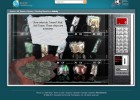
Vending Machine
Tiching explorer Organización
- 3042 visitas
In this activity we have to determine which vending machines take coins or bills. Then we have to buy ourselves a drink and a snack following the oral instructions. Students can practice vocabulary…
Te estamos redirigiendo a la ficha del libro...













